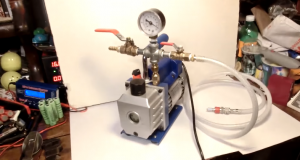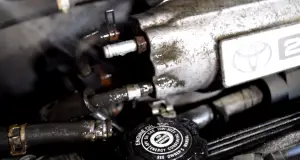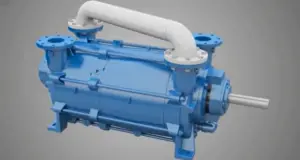The Dyson V6, V7, V8, V10, V11, and V15 cordless vacuums are powerful and competent convertible, bagless, cordless vacuum cleaners that can clean from the floor to the ceiling.
Dyson cordless vacuums are recognized for their high suction and air filtration, a large selection of cleaning equipment and attachments, ease of use and maintenance, favorable warranty conditions, and so on. All of these qualities, however, come at a cost – Dyson cordless vacuums are not cheap, but because consumers receive what they pay for, these vacuums are among the most popular on the market.
Keeping up with the filth, grit, and lint in your home might be the easiest or most difficult task you’ve ever undertaken. It may be especially aggravating if you have a mediocre best vacuum cleaner for carpet that is sluggish and ineffective.
Furthermore, with so many models, brands, features, and accessories on the market, selecting the best vacuum can be difficult. You must conduct research to determine what you require the hoover for and which features will be most useful in your situation.
After that, after you’ve determined what you need from a sweeper, you can go out and get one. However, if you are unsure about what you require, you can always ask a vacuum cleaner store attendant or go through some tips to get the finest hoover for you.
But first, here’s a thorough introduction to vacuum power and how amps impact the device’s capacity to remove allergens from your sanctuary.
Defining The Amps Of A Vacuum Cleaner
The first thing you must understand is how amps are measured, as well as the distinction between amps and watts.
When it comes to a vacuum’s power consumption, the two most frequent terms are amps and watts. There is a substantial distinction between the two.
Amps are the units of current flow, whereas watts are the measurement units of power. Amps are used to describe electricity, whereas watts are used to describe other types of energy.
How Many Amps Does Your Vacuum System Use
The majority of upright and canister vacuum cleaners use 8- to 12-amp motors. The household outlet into which you plug your sweeper has a maximum capacity of 15 to 20 amps, depending on the circuit.
Even with the fluctuation in amps, the maximum permitted for UL approval is 12 amps, thus you can’t buy a vacuum with more than 12 amps.
Why Amps Aren’t a Dependable Gauge Of Suction Power
Amps indicate the movement of electrical current from your outlet to your vacuum’s motor. While most models contain “12 amps” as stated by their makers, possessing a 12-amp1 hoover does not always mean that you own the most powerful cleaner on the market. It all depends on the manufacturer’s design of the motor to efficiently utilize the amps.
Other than amperage, the following elements have a major impact on a vacuum cleaner’s cleaning power:
-
The Manufacturer’s Style
Contrary to popular perception, the manufacturer’s design has a significant influence on vacuum performance. Some of the models include two or even three fans2 that function in tandem. (Vacuum cleaners with two motor fans usually create more suction, especially when using onboard attachments.) Idyllically, most canister vacuums are two-motor optimized, whilst upright models are generally one-motor optimized).
-
The State Of The Filters
The system’s ability to capture and filter dirt has an impact on the vacuum’s cleaning power. To get the most out of washable filters3, make sure to clean them on a regular basis according to the manufacturer’s instructions for maximum airflow.
-
Design Of The Floor Nozzle
Hose has an influence on hoover’s performance as well.
Do Amps Indicate Excellent Suction Power
As previously stated, amps measure the flow of electrical current from your outlet to your vacuum cleaner’s motor. Although there are many vacuum cleaners that come with 12 amps, as their manufacturers clearly state, this does not necessarily imply that having a 12-amp vacuum cleaner assures you of having the most powerful vacuum on the market. This is determined by how the maker intends to use the amp productively. Because some 12-amp vacuum cleaners outperform other vacuum cleaners of comparable amperage.
Conclusion
You may think of it this way: your vacuum cleaner’s amperage allows you to compare the input power of the suction motor and the entire machine.
It is important to understand that just because a vacuum cleaner motor uses more power does not imply. It will perform better in cleaning than a vacuum cleaner motor that consumes less electrical current.
Also It might also imply that the amp ratings don’t measure how effective the motor is; there are other elements to consider. It includes such as the number of fans in the motor (two is better) and the overall design of your vacuum cleaner.




